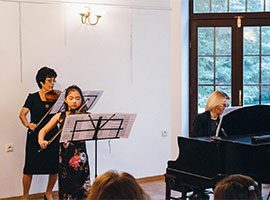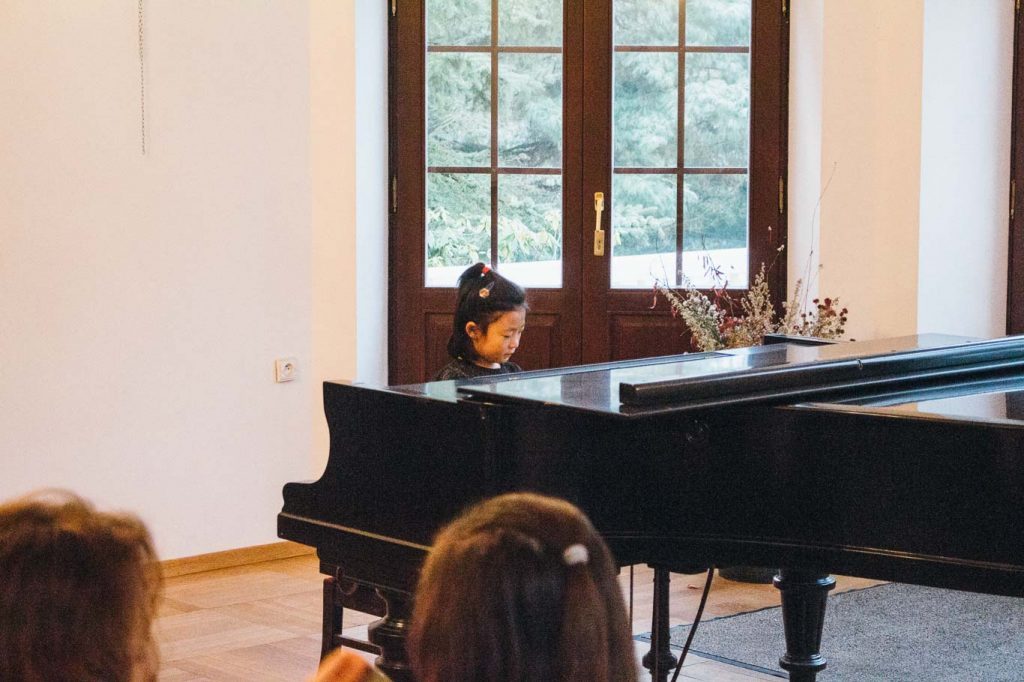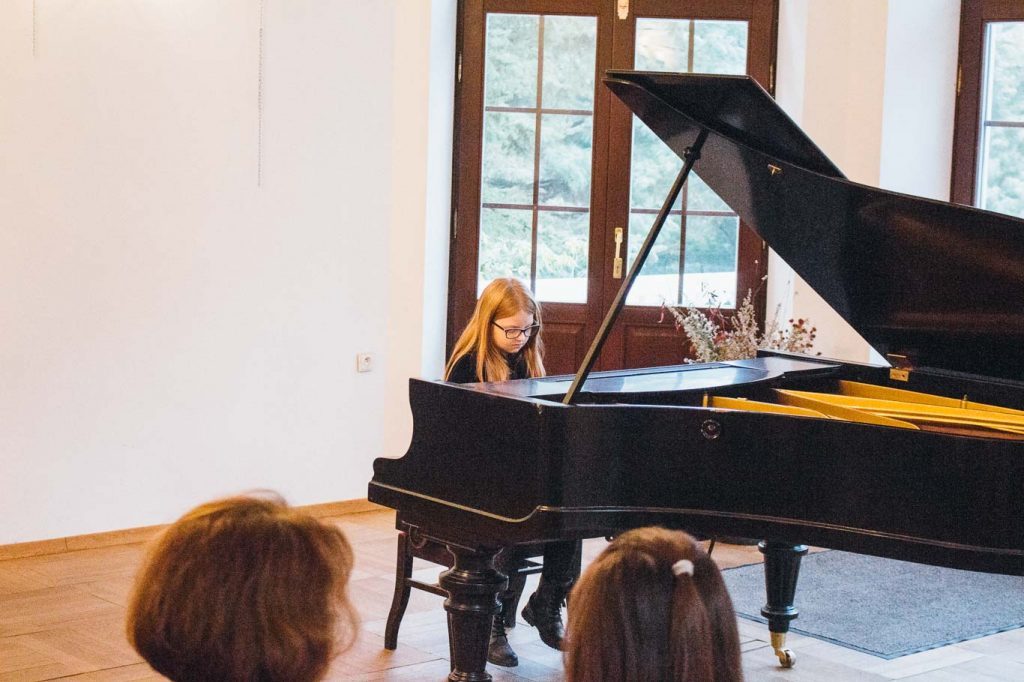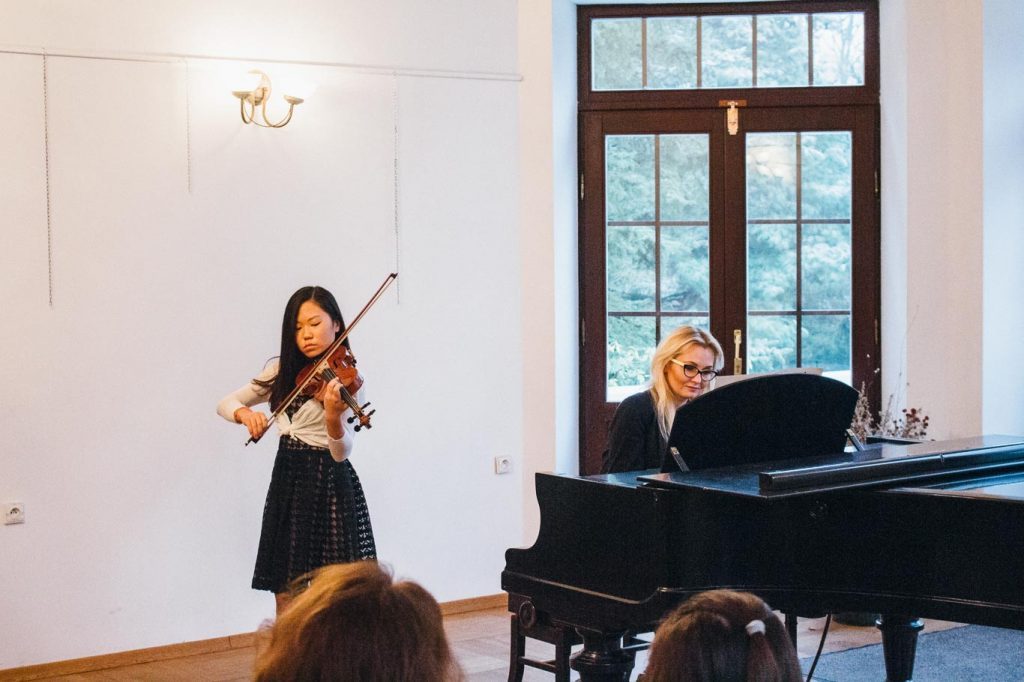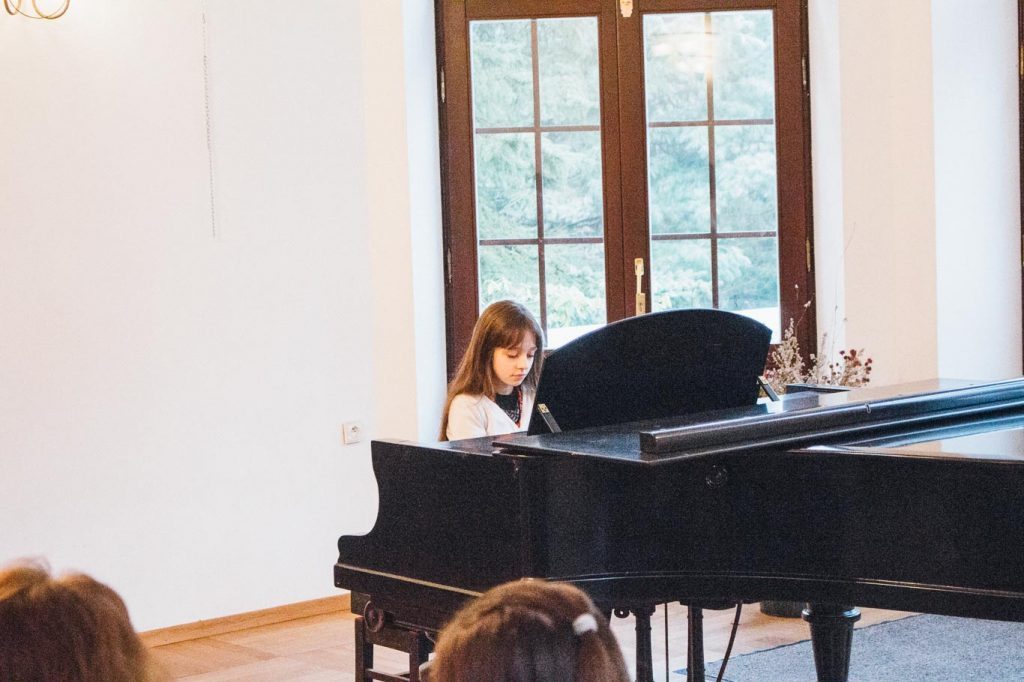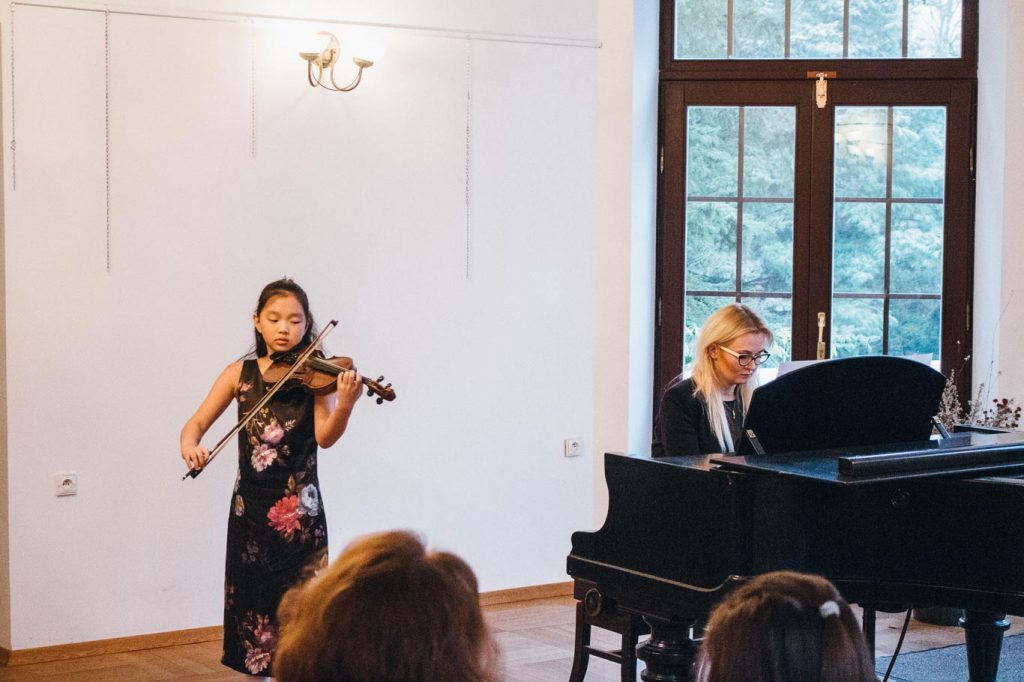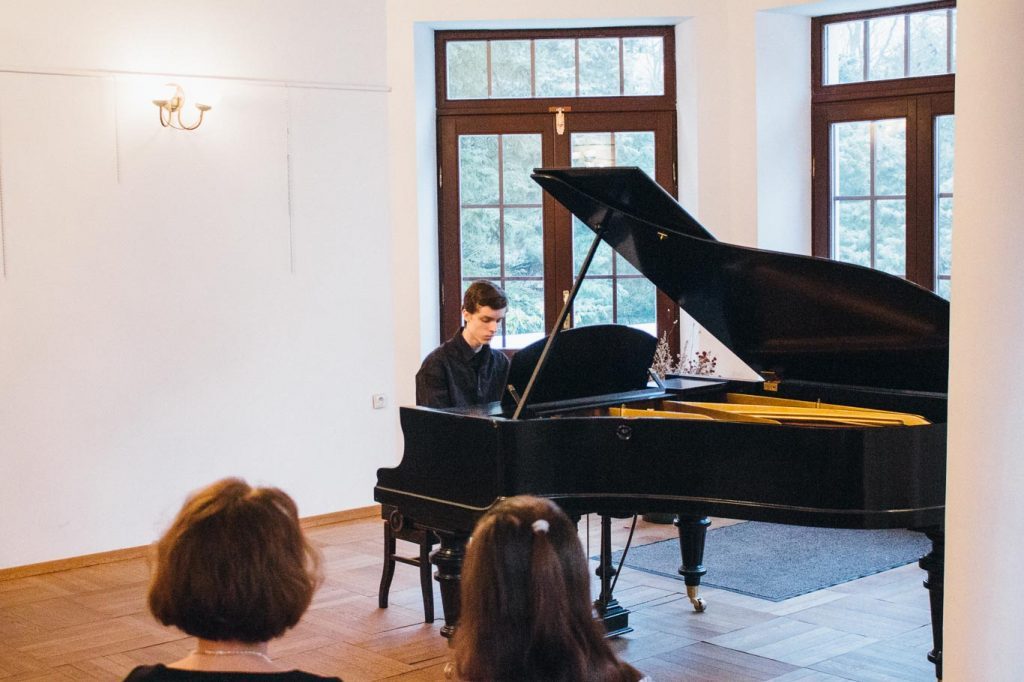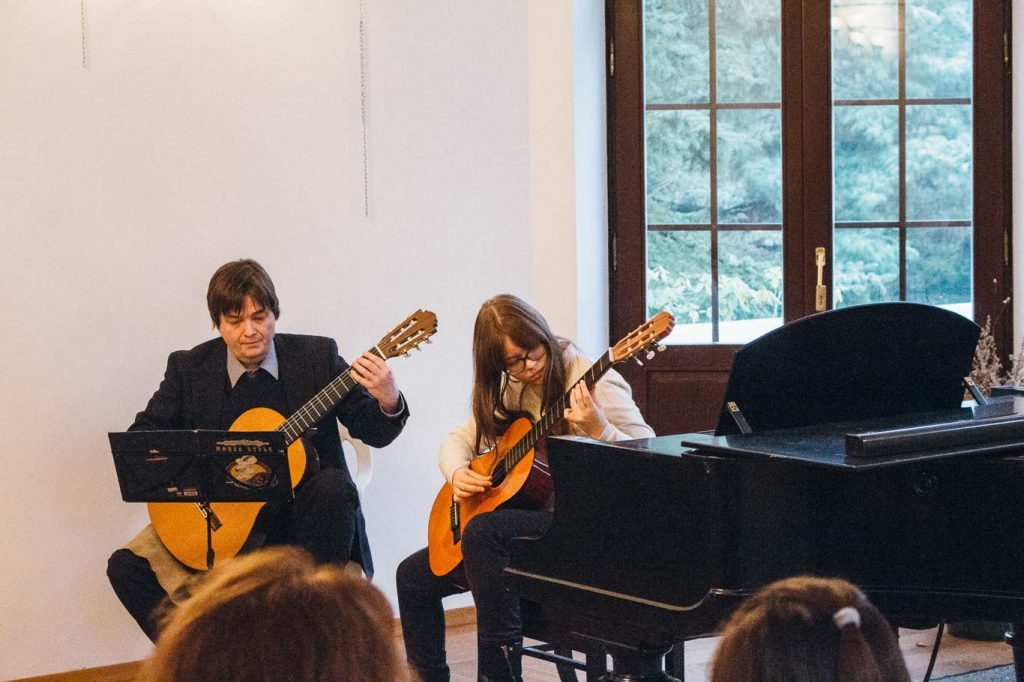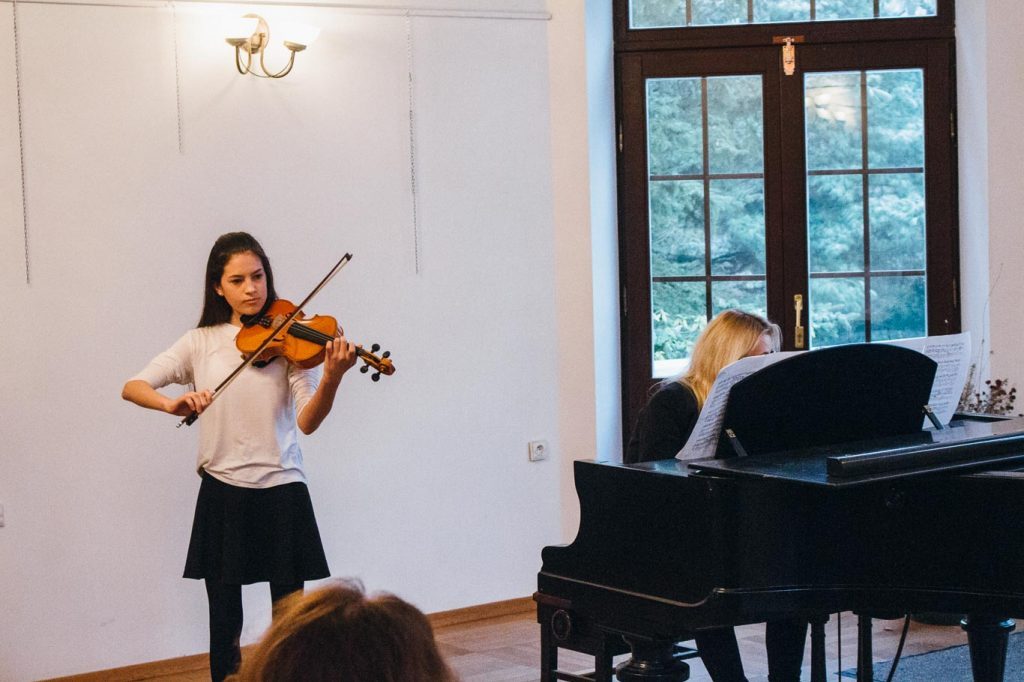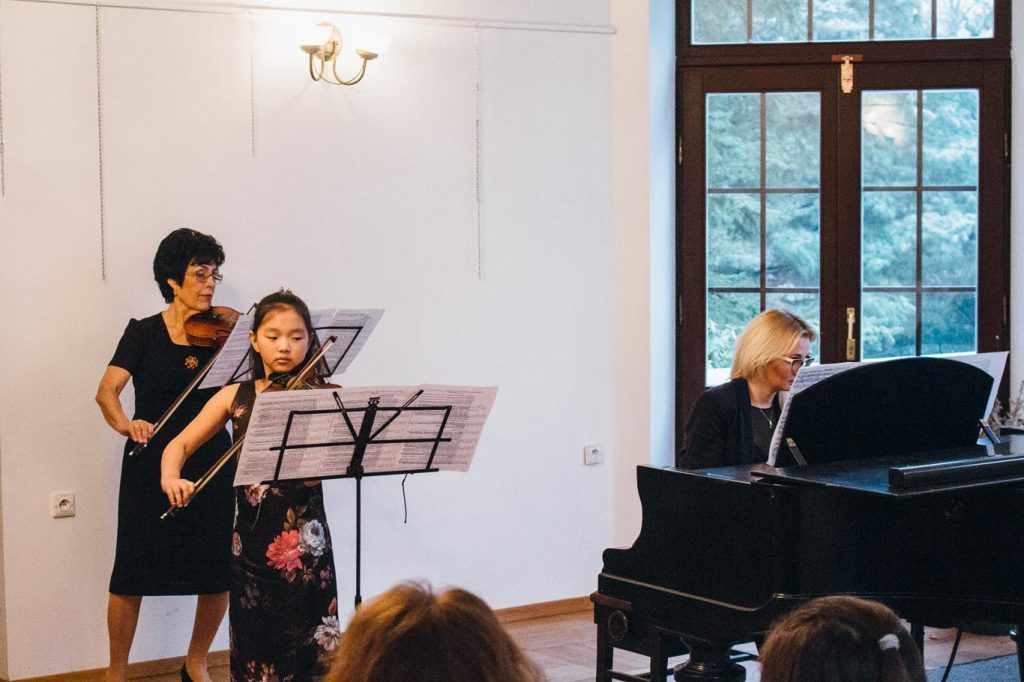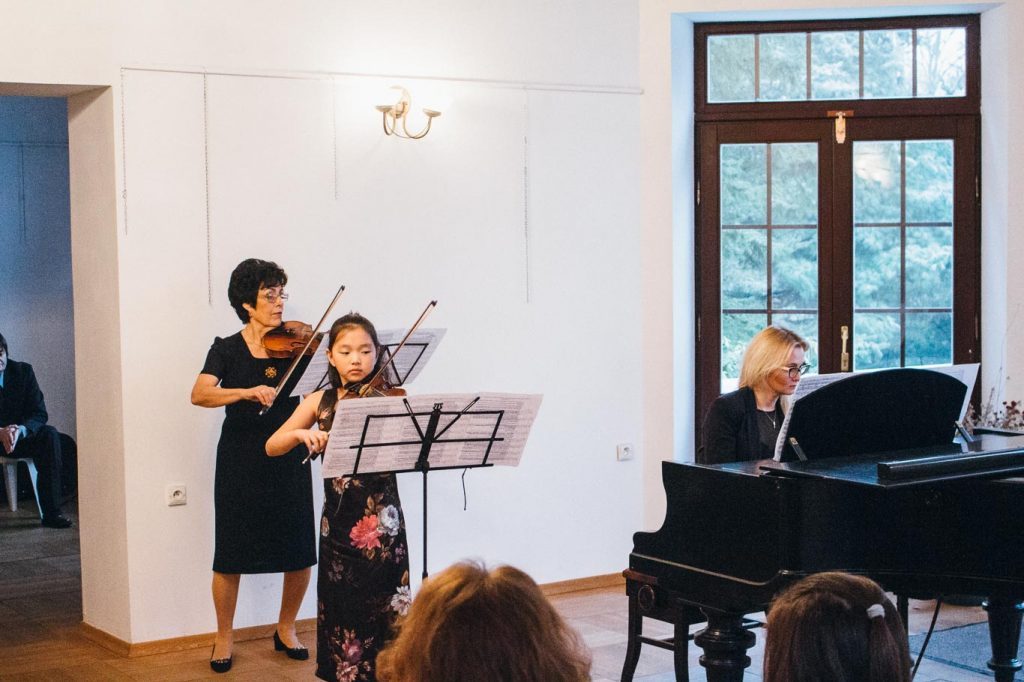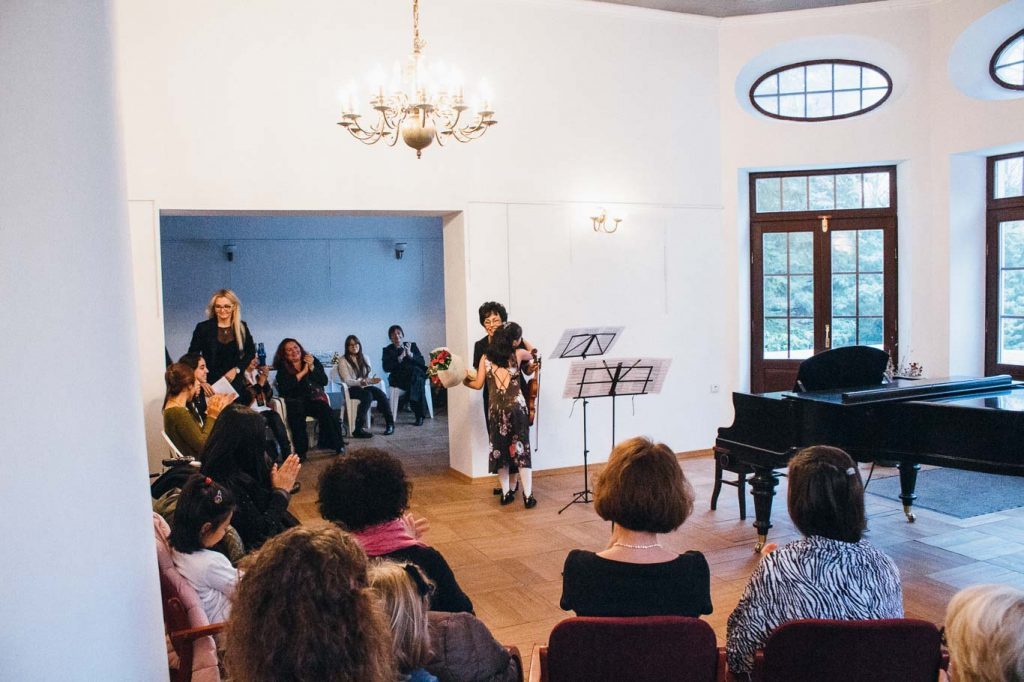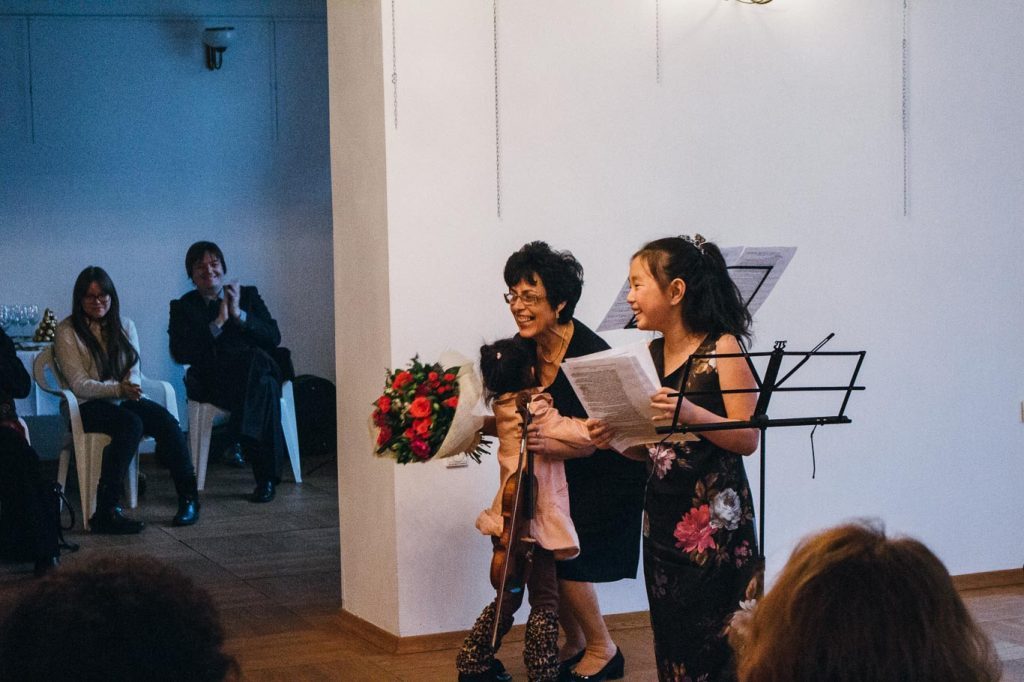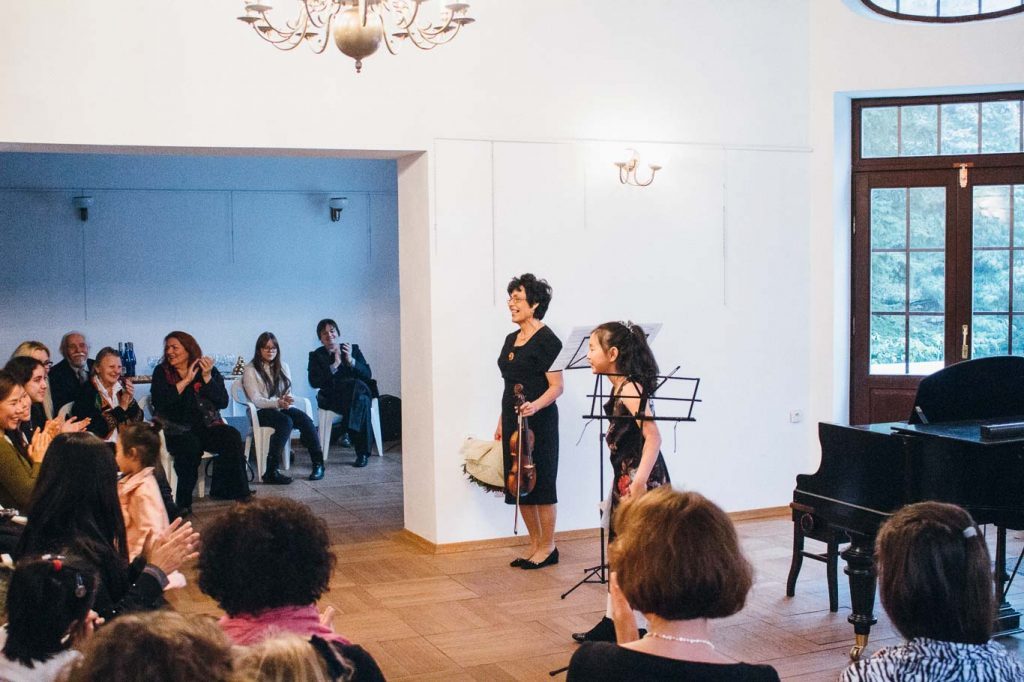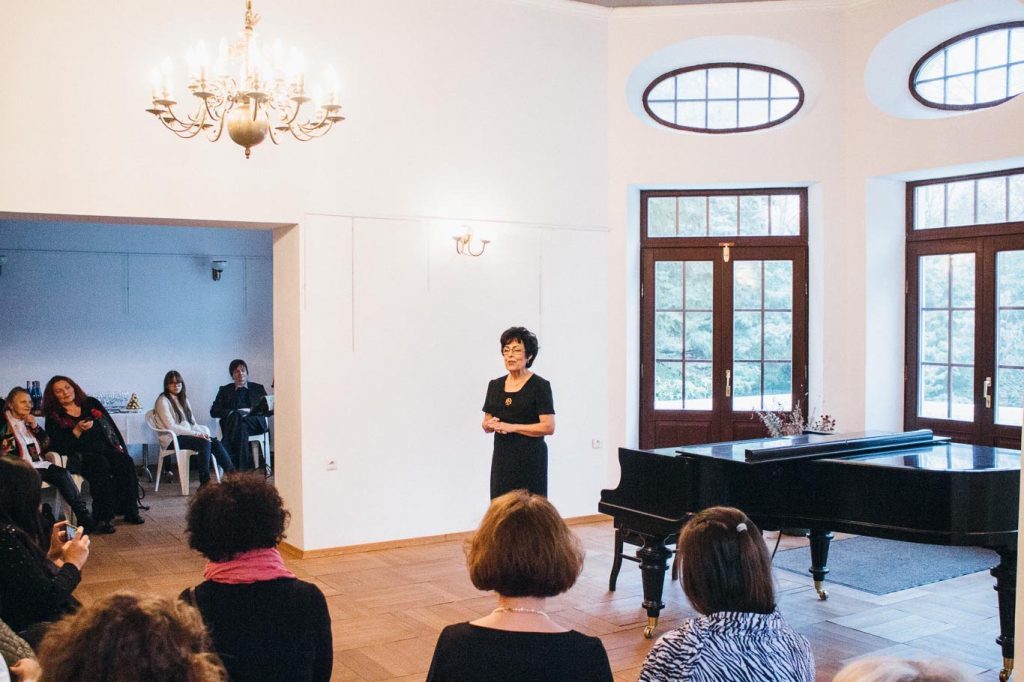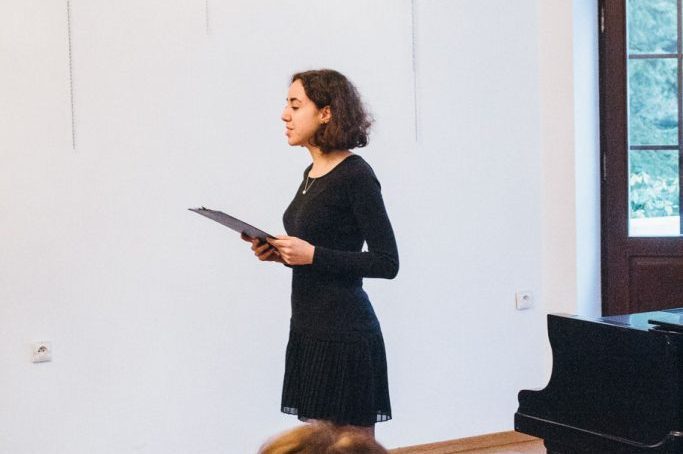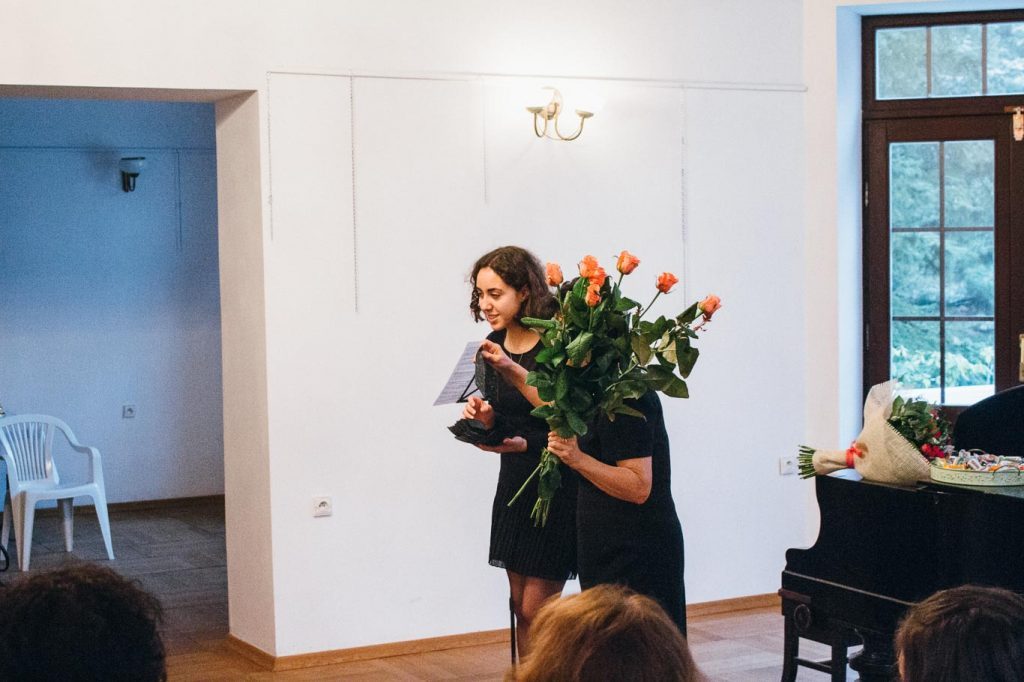December 17th 2016 Unisono Music School celebrated an unusual festivity. We met at Fangorówka manor in the Botanic Garden of the Polish Academy of Sciences in Powsin and participated in the Musical Concert celebrating the 50th Anniversary of the pedagogical and artistic activity of Zofia Zwolińska – the founder and director of the Music School Unisono in Warsaw. The Music Academy was recently filled with an electrifying atmosphere as we celebrated the 50th anniversary of Zofia Zwolińska’s tuition, a milestone that showcased the immense talent and dedication of this esteemed musician. The concert held in commemoration of this momentous occasion was a truly unforgettable experience, leaving audiences in awe and reaffirming the power of music to touch hearts and transcend time.
From the piano class of professor Magda Lewandowska we heard Dżudżu Yang Yi playing Little Chinese by Rowley- Zosia Kowalska performing Merry pony by Miłosz Magin and Hania Głąb playing Moody Prown Blues.
Michał Filipek, piano, (class of professor Konstancja Kawalla-Kosiec) performed Johann Sebastian Bach’s Prelude C-Major.
Angelika Czigiloi (guitar) played Guitar-Duet with professor Krzysztof Komarnicki.
From professor Zofia Zwolińska class of violin: Tikey Lee) performed Part II and III of Concertino by Grażyna Bacewicz, and Ella Bai played Air Varie by Charles de Beriot.
Final part of 50th anniversary
In the final part of the concert, the jubilee, professor Zofia Zwolińska, and her student, Ella Bai, performed Double Violin Concerto by Antonio Vivaldi.
After the musical part of the event Zofia Zwolińska related about her experiences during her pedagogical and artistic carrier.
Finally, Berenika Pietraga, and her sister Liza who announced the performers during the concert, distributed among all the guests souvenirs commemorating the event.
50 years of violin music tuition changes perspective on music schooling
Being in the business of tuition for so long, gave Zofia Zwolińska new outlooks. Music schooling has changed significantly over the past 50 years, and this may have had an impact on the way violin music tuition is conducted. Some potential changes that may have occurred over this time period include:
Changes in teaching approaches: Music education research and pedagogy have evolved over the past 50 years, and this may have led to changes in the way that violin music tuition is conducted. For example, there may be a greater emphasis on student-centered learning and individualized instruction, or on the use of technology in the classroom.
Changes in curriculum: The curriculum for violin music tuition may have changed over the past 50 years to reflect the evolving needs and interests of students. This may include the inclusion of new repertoire, the incorporation of new teaching materials or resources, or the integration of different teaching methods.
Changes in the role of technology: The use of technology in music education has increased significantly over the past 50 years, and this may have had an impact on the way violin music tuition is conducted. For example, students may now have access to online resources or interactive learning tools that were not available in the past.
Overall, it is likely that the perspective on music schooling, including violin music tuition, has changed significantly over the past 50 years, and that these changes have had an impact on the way that music education is conducted.
Reinventing musical education via individual lessons without stress
After working in public musical schools in Poland, Zofia Zwolińska realized that individual lessons can be a great way to reinvent musical education, especially for those who may be feeling stressed or overwhelmed in a group setting. Individual lessons allow students to receive personalized attention and guidance from their teacher, which can help them progress more quickly and effectively.
Benefits of individual lessons Zofia observed include:
- Customized learning. Individual lessons allow students to focus on the specific areas of music that they want to improve, rather than following a predetermined curriculum. This can help them learn at their own pace and focus on their individual goals.
- One-on-one attention. Individual lessons offer students the opportunity to receive individualized attention and feedback from their teacher. This can help them feel more confident and motivated, as they are able to ask questions and receive immediate feedback.
- Flexibility. Individual lessons can be scheduled at a time that is convenient for the student, which can help reduce stress and allow them to fit music education into their busy schedules.
Individual lessons offer students the opportunity to receive one-on-one attention and guidance from their teacher, allowing them to progress more quickly and effectively. These lessons also allow students to focus on specific areas of music that they want to improve, rather than following a predetermined curriculum. This can help them learn at their own pace and focus on their individual goals.
In addition to the personalized attention and customized learning, individual lessons also offer flexibility. They can be scheduled at a time that is convenient for the student, which can help reduce stress and allow them to fit music education into their busy schedules.
It is important to adapt when the times change
It is important for music educators to continually reflect on and adapt their teaching approaches to ensure that they are meeting the needs and interests of their students. This is especially true in the field of violin music tuition, where students may have different learning styles, goals, and motivations for studying the instrument.
Some ways that music educators might adapt their teaching approaches in violin music tuition to meet the needs of their students might include:
Using a variety of teaching methods: Employing a range of teaching methods, such as hands-on activities, demonstrations, and individualized instruction, can help engage students with different learning styles and needs.
Incorporating technology: Using technology in the classroom, such as online resources, interactive learning tools, or video tutorials, can help make learning more engaging and accessible for students.
Providing individualized support: Offering individualized support and guidance to students can help ensure that they are able to progress at their own pace and address any specific challenges or needs they may have.
Encouraging student feedback: Seeking feedback from students about their learning experiences and incorporating their suggestions and ideas can help make violin music tuition more engaging and relevant to their needs and interests.
Overall, it is important for music educators to be flexible and adaptable in their teaching approaches in order to meet the diverse needs of their students and help them achieve their musical goals.
Zofia Zwolińska legacy
In the vibrant world of music, there are certain moments that etch themselves in our memories forever. One such unforgettable event was the extraordinary concert celebrating the 50th anniversary of Zofia Zwolińska’s tuition. From the moment the doors opened, anticipation and excitement filled the air. Music enthusiasts, eager to witness this historic occasion, gathered in anticipation of an awe-inspiring performance. The concert hall was adorned with elegance and sophistication, setting the stage for a truly remarkable evening.
As the lights dimmed and silence fell upon the audience, Zofia Zwolińska gracefully made her entrance onto the stage. The room erupted with thunderous applause, a testament to her esteemed reputation as a masterful musician and dedicated teacher. From the first notes played, it became evident that this concert would be nothing short of extraordinary. Zofia Zwolińska’s technical prowess and artistic sensitivity were on full display as she flawlessly navigated through a repertoire that showcased her diverse musical talents.
Throughout the evening, Zofia Zwolińska’s passion for music shone brightly. Her dedication to her craft was palpable, inspiring everyone in attendance. Each piece she performed was imbued with a deep sense of personal connection, transporting listeners on an emotional journey unlike any other.
The concert came to a close with a standing ovation that seemed to stretch on for an eternity. The audience rose as one, their applause a resounding tribute to Zofia Zwolińska’s extraordinary talent and unwavering commitment to music. It was a moment of pure admiration and gratitude, as the audience members recognized the profound impact she had made on their lives through her teaching and performances.
Looking back on that magical evening, it is impossible not to be moved by the brilliance and artistry that Zofia Zwolińska brought to the stage. Her concert celebrating the 50th anniversary of her tuition will forever be remembered as a testament to her musical legacy, inspiring generations of musicians to come.
More than half a century of violin teaching
Zofia Zwolińska, the remarkable classical violinist, has graced the world of music with her mesmerising talent for over half a century. With a career spanning decades, Zofia has not only enchanted audiences with her flawless performances, but has also dedicated herself to sharing her expertise as a violin teacher.
From the first note, Zofia captivates her audience with her impeccable technique and emotional depth. Her mastery of the violin is evident in every delicate stroke of the bow and every precise placement of her fingers on the strings. It is as if the violin becomes an extension of her own being, effortlessly expressing the deepest emotions and inspiring awe in all who have the privilege of hearing her play.
But Zofia’s musical journey does not end with her own performances. With a heart full of passion for her craft, she has dedicated herself to nurturing young talent and passing on her wisdom to future generations. For more than half a century, Zofia has shared her knowledge and love of the violin with countless students, turning them into skilled musicians who can carry on the legacy of classical music.
As a teacher, Zofia has an innate ability to inspire and motivate her students. Her dedication to their growth and development goes beyond simply imparting technical skills; she instils in them a deep appreciation for the beauty and power of music. Zofia’s unwavering commitment to excellence sets an example that her students eagerly follow, pushing themselves to reach new heights under her guidance.
Zofia Zwolińska’s impact on the world of classical music cannot be overstated. Her performances have graced prestigious concert halls around the globe, leaving audiences spellbound and yearning for more. Her role as a teacher has shaped countless lives, nurturing young talents who will undoubtedly make their mark on the world stage.
In a world where time seems to move at an ever-increasing pace, Zofia Zwolińska is a testament to the enduring power of dedication and passion. Her unwavering commitment to her art and to her students is truly inspiring. Zofia’s contributions to classical music will forever be cherished, and her legacy will continue to inspire generations of musicians to come.
Ending
The event was continued in a cordial and friendly atmosphere long after the official part was over. Zofia Zwolińska recalled the years of her pedagogical and artistic carrier, the beginnings of her Musical School Unisono, and presented plans for the School for the time to come.
